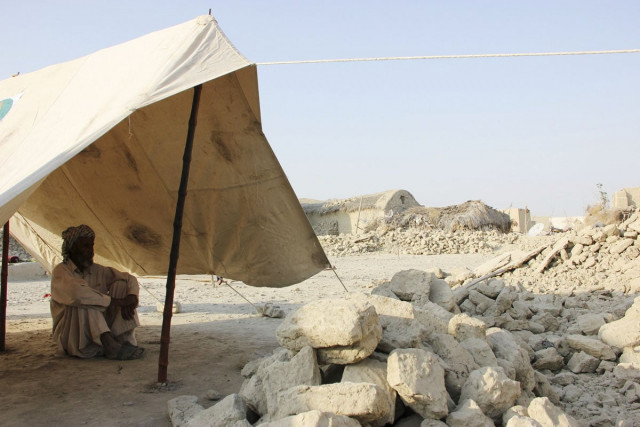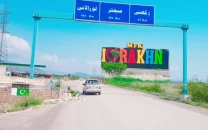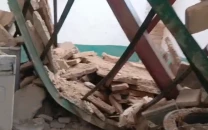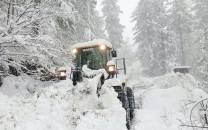Tremors kill three children in Balochistan
Five people, including three women, injured in mishap

Three children were killed and five others injured after a 3.5-magnitude earthquake struck Chaman, Pakistan’s bordering city with Afghanistan in the wee hours of Saturday.
Babar Yousafzai, the Balochistan chief minister’s spokesperson, told The Express Tribune that two houses collapsed in the tremors.
Three children – 12-year-old Palwasha, eight-year-old Sajawal and 10-year-old Amina – were killed when the roof of their mud-walled house collapsed in the Killi Bilalzai area of Chaman district.
Meanwhile, five people, including three women, were also injured in the mishap in the same house.
The injured were shifted to the District Headquarters Hospital Chaman where an emergency was declared.
Yousafzai said that the quake measured 3.5 on the Richter scale.
Read K-P hardest hit by earthquake
He said no one was harmed in the other house.
The Levies Force personnel and the Provincial Disaster Management Authority (PDMA) staff reached the damaged house to help the injured.
Last month, 10 people died, including two women and two children, after a quake struck various parts of the country.
All the deaths occurred in Khyber-Pakhtunkhwa (K-P). However, the PDMA gave a lower tally of 62 injured from earlier reports of nearly 180.
It said 10 houses were destroyed, while 55 were partially damaged.
The Pakistan Meteorological Department (PMD) said the 6.8-magnitude earthquake had its epicentre in Hindu Kush region of Afghanistan at a depth of 180 kilometres. The United States Geological Survey said that the 6.5 tremor centred near Jurm in Badakhshan.
K-P had, so far, been the worst-affected by the strong earthquake that rattled the region, including Afghanistan, some parts of Central Asia and India.
Tremors were also felt in several cities of Punjab and Balochistan but there were no reports of casualties. However, cracks appeared in several high-rise buildings in Rawalpindi and elsewhere.
Large parts of South Asia were seismically active because a tectonic plate known as the Indian plate was pushing north into the Eurasian plate.
A 6.3-magnitude earthquake jolted parts of the federal capital on January 29 while another 5.6-magnitude quake shook several K-P districts on January 19.



















COMMENTS
Comments are moderated and generally will be posted if they are on-topic and not abusive.
For more information, please see our Comments FAQ